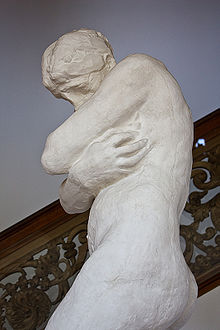
Let us be clear. The Primordial State is not a “state of nature” as in Rousseau, but rather of supernature. But if in the Primordial State man lives in harmony with nature and the divine, with a direct awareness of God in his psyche as his life force, and with bonds of loyalty to his family and nation, then what would account for a change in consciousness? The following chart shows the effects of the Fall in the Genesis account, and the corresponding condition that was affected.
| Effect of Fall | Consciousness before fall |
|---|---|
| Toil | Concentration without effort |
| Suffering | Natural joy |
| Death | Transformation |
Effects of the Fall
The point to keep in mind is that the Fall is an event in consciousness; it is necessary to meditate on the symbols of the fall, and the description of the states, to fully understand.
- Toil
- Everyone has had the experience of being totally absorbed in an activity, to the extent that time seems to stand still. One feels energized and does not tire. Similarly, composers and poets have often described moments of inspiration, and the poem or symphony seems to write itself. This state of “concentration without effort” is comparable to the Taoist ideal of wei-wu-wei, or doing-nondoing. After the fall, concentration becomes difficult and labored; one becomes restless and bored; activities begin to feel like toil.
- Suffering
- Man lived in a state of natural joy. The sensory experience of the natural world was vivid and pleasurable; it did not require a special trip to a resort. Man was in communication with the gods and angels, was aware of the presence of his ancestors. He lived in peace with his nation and leaders without private concerns. This was replaced with feelings of resentment and ambition. This led to frustration, anxiety, shame, guilt, and fear. Man became alienated from nature, from the divine, from his nation, and leaders.
- Death
- Death was understood as a natural process and it represented a transformation. A man was prepared for his death by understanding the post-mortem states of being. He was aware of his ancestors and felt his immortality in his descendants. After the fall, man lost direct awareness of the divine, of his ancestors, of post-mortem states, of his own true Self. Death became something to fear, something that signified destruction rather than transformation.
Perversion of Soul Life
The psyche, or soul, which had been a pure reflector of both nature and the divine, becomes obsessed with the effects of the fall. The consequence is that the formerly direct intuitive awareness of nature, the divine, and nation becomes occluded. The true Self is decentered and a false self is established. Julian Jaynes describes the characteristics of this state. [See Note.]
- Spatialization
- A mind-space model of consciousness is invented.
- Excerption
- Consciousness is focused on just a part of experience. The vividness of the Primordial State is lost.
- Analog I
- A model of one’s self is created in consciousness. This acts like a little god in one’s own consciousness, with its own plans.
- Objectification
- Beyond the “I” as subject, the self becomes an object in consciousness
- Narratization
- There is a running narrative consisting of a web of thoughts. This narration forms our very identity. Thus, it becomes very difficult to alter since that would be felt as a threat to oneself.
- Assimilation
- Experiences are forced to fit into pre-conceived or remembered patterns. This makes it very difficult to understand, or even hear, new ideas.
Initiation
Initiation means conscious experience of the beginning, that is, of the Primordial State. The various traditions have arisen in order to lead back to the Primordial State.
NOTE: Julian Jaynes, in his remarkable book, The Origin of Consciousness in the Breakdown of the Bicameral Mind, brings historical evidence to a change in consciousness similar to what has been described. Unfortunately, it is sui generis, and due to some faulty assumption, the author was never able to develop his insights further. In particular, he regards the Primordial State as a state of unconsciousness and the fallen mind as the beginning of consciousness. Tradition sees it just the opposite.

Leave a Reply